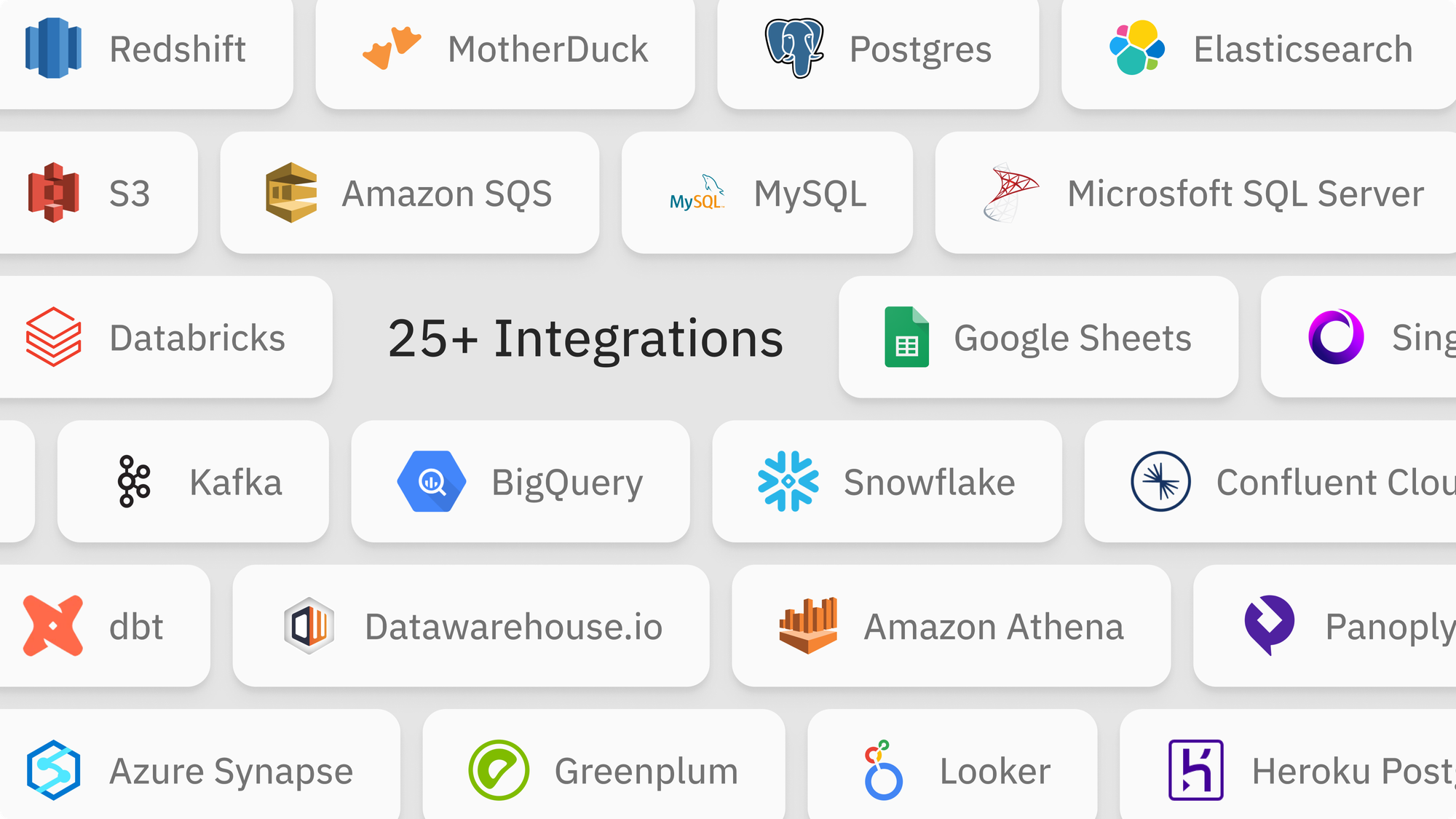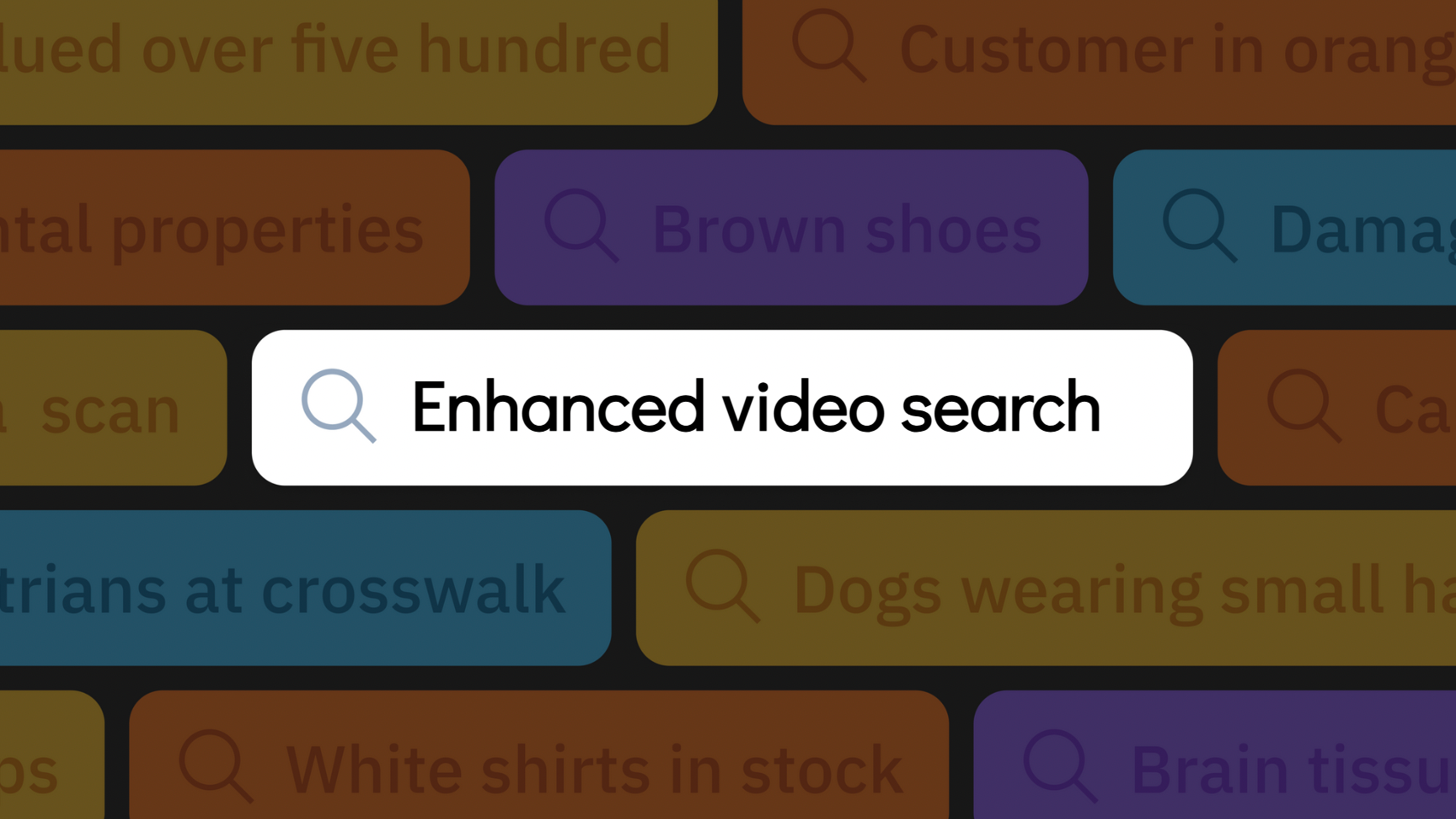Labelbox•September 14, 2023
How to accelerate time-to-value when building AI for retail and e-commerce
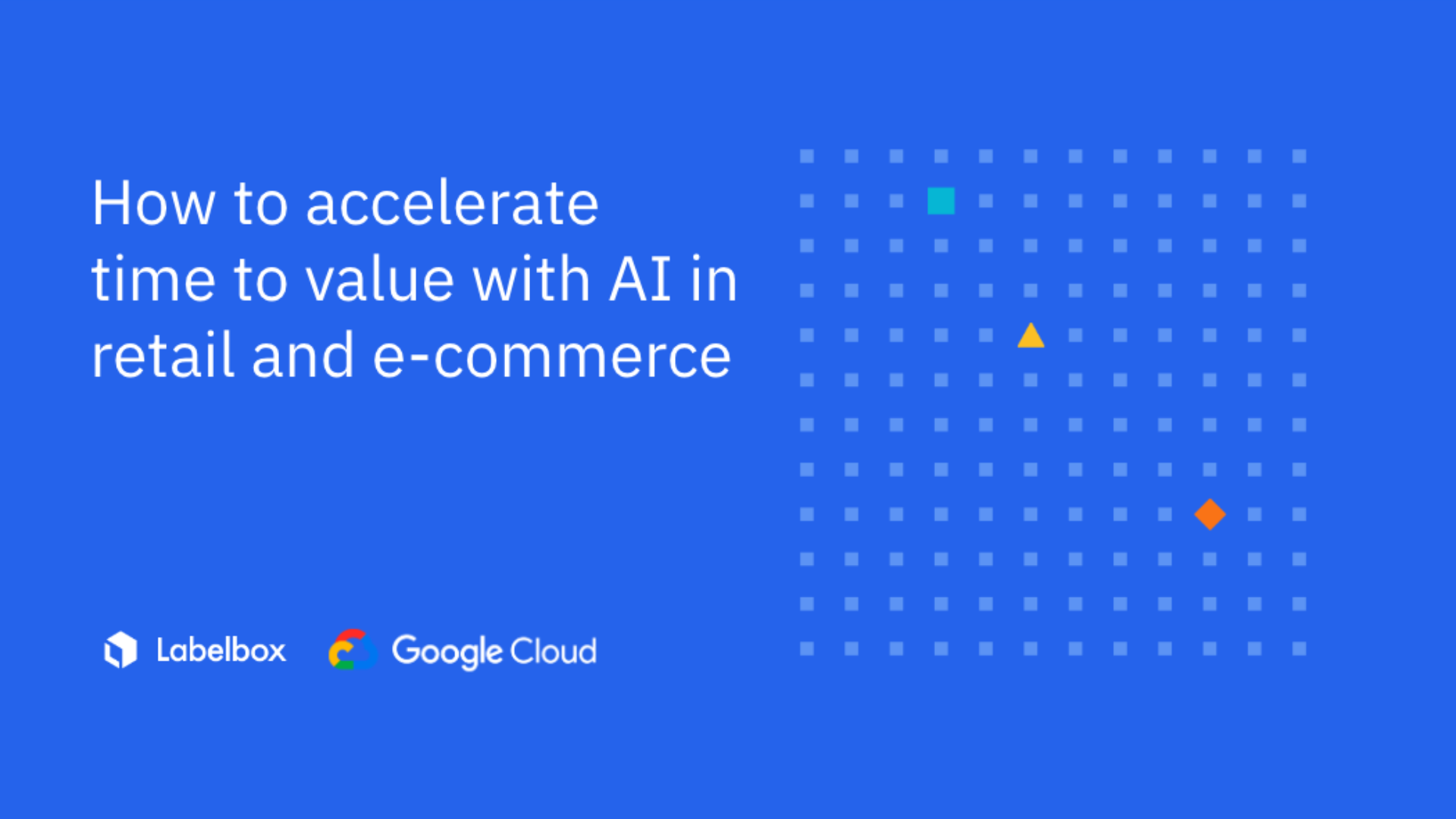
Retail and e-commerce organizations stand to benefit significantly from AI solutions — from delivering more personalized marketing and customer experiences to automating supply chain processes. Getting these AI-powered tools up and running in time to gain a competitive edge or just keep up with competition, however, can often be a challenge. Read on to discover tips and best practices for accelerating your time-to-value when building AI solutions for your retail and e-commerce business.
The insights below were also explored in our on-demand webinar: Accelerating time to value with AI in retail and e-commerce.
Optimize your AI development tech stack
AI teams have many options when it comes to choosing the tools for storing, managing, and labeling their data, training their models, and exploring various foundation models to leverage for their use cases. Choosing tools that integrate well and can function seamlessly as part of a bigger solution is key to avoiding the delays that come with clunky data transfers and code-heavy architectures.
The reference architecture below shows a combination of Labelbox and Google Cloud solutions integrated to form a well-oiled AI development machine. In it, unstructured data is stored in Google Cloud Storage and Google Big Query, each of which can be integrated with purpose-built connectors to Labelbox, a data-centric AI platform. In Labelbox, teams can explore and curate data, label data, incorporate state-of-the-art automation techniques to save labeling time and costs, and more. Labeled data can be seamlessly brought into Vertex AI for model training, and the resulting model predictions can be delivered back into Labelbox for evaluation via a dedicated API. Both labeled data and model predictions can also be transferred back into Google Big Query for analysis and downstream model training as needed.
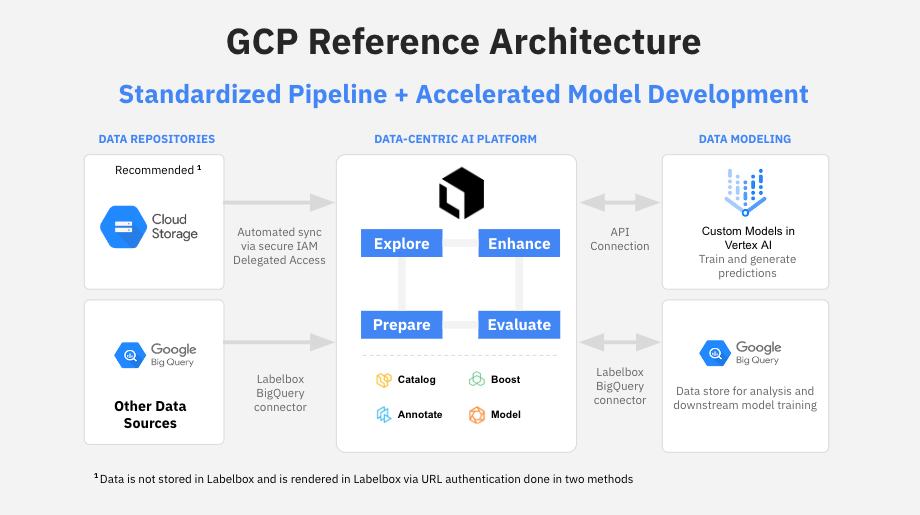
Leverage LLMs and other foundation models
Building custom AI models from scratch is often no longer necessary — nor do they always result in the most accurate or reliable solution for your use case. Leveraging foundation models can accelerate the development process whether you use them as a baseline model and fine-tune them for your specific use case or simply use their predictions to pre-label your data.
The reference architecture below shows how you can leverage an LLM with Labelbox and Google Cloud to build a model for customer care, such as a chatbot or pulse check system. You can use Labelbox’s upcoming Model Foundry to explore and test various LLMs to gauge their performance on your data, pull LLM predictions into a labeling workflow as pre-labeled data and/or create datasets for fine-tuning, and integrate with your Google Cloud storage or Big Query instance to store and analyze your data.
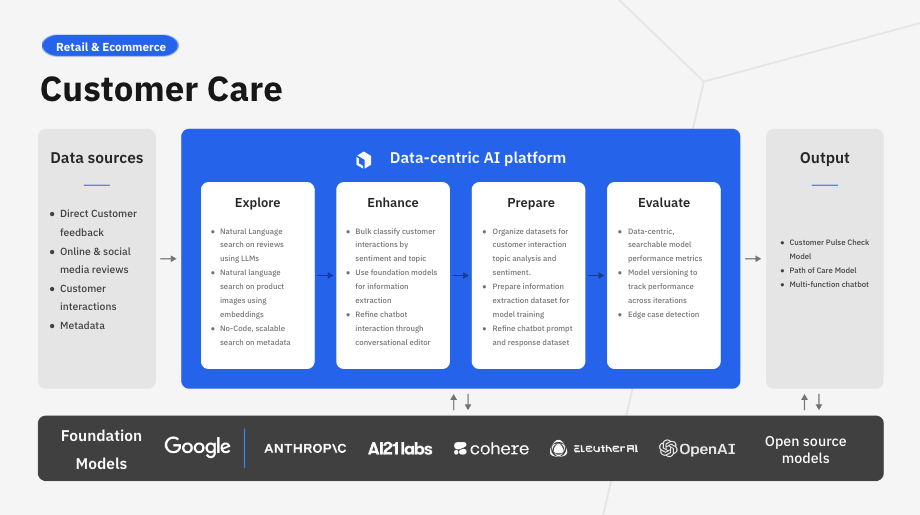
Automate data labeling
Data labeling continues to be one of the most expensive and time-consuming parts of building AI. Automating some of this process can result in significant time and cost savings for your team. Labelbox supports several ways to automate labeling, including:
- Auto-segmentation — for teams doing image segmentation for their computer vision project, this tool can reduce labeling time for a single image from hours to minutes
- Bulk classification — find groups of similar data and classify them in bulk in just a few clicks
- Pre-labeling or model-assisted labeling — use programmatically generated labels or model predictions as a starting point so that your labelers only need to review and correct labels rather than label from scratch
- Use foundation models to automatically label data — this works similarly to model-assisted labeling, but because foundation models are so powerful, you’ll get a much higher level of accuracy
The reference architecture below incorporates bulk classification and the use of foundation models to accelerate the development of AI solutions that can monitor marketing campaigns as well as competitor marketing and extract useful insights.
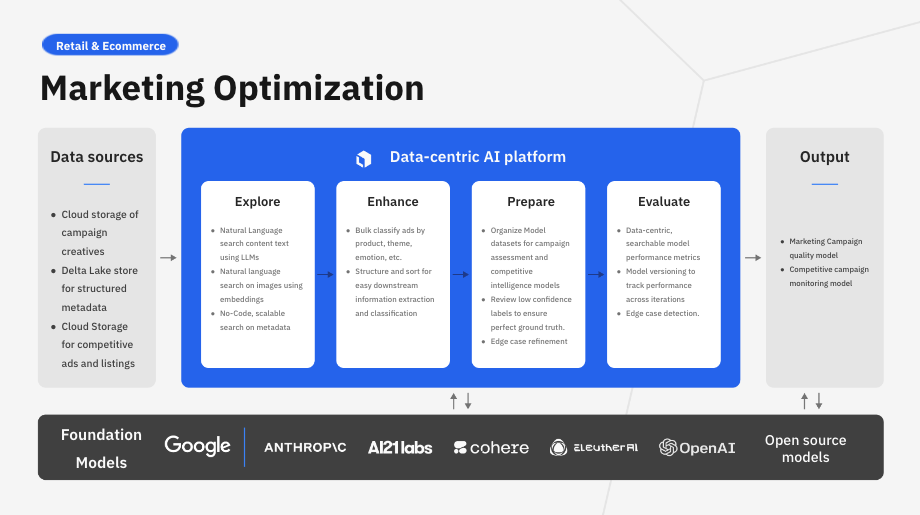
To discover more AI use cases for your retail and e-commerce organization and learn how you can accelerate their development with powerful data storage, foundation models, and a state-of-the-art data-centric AI platform, watch our on-demand webinar: Accelerating time to value with AI in retail and e-commerce.

 All blog posts
All blog posts
